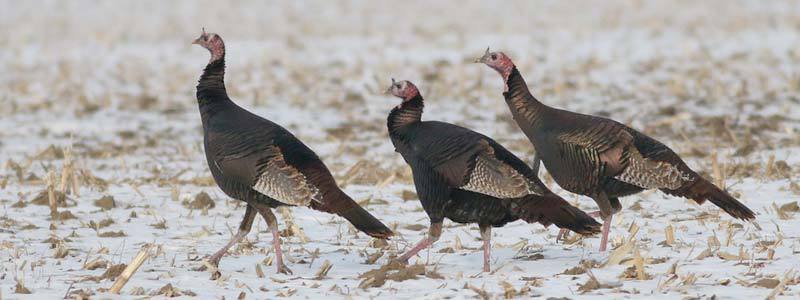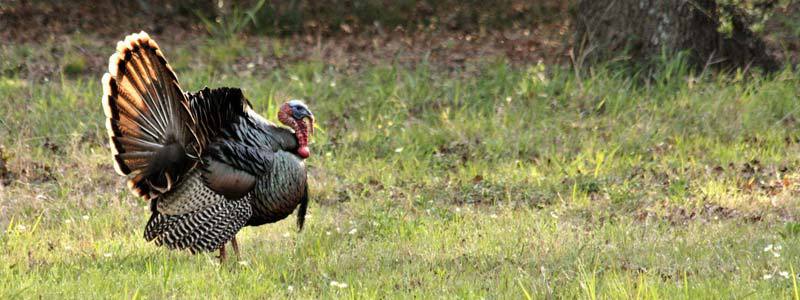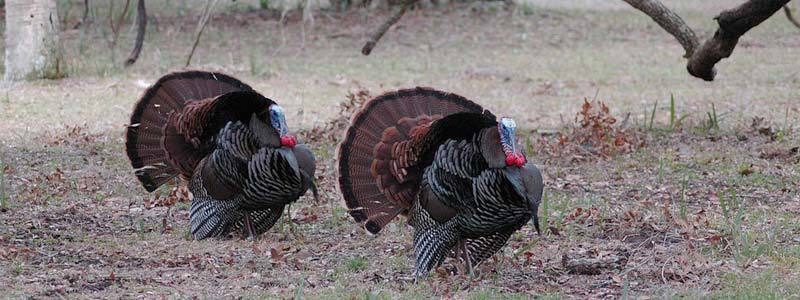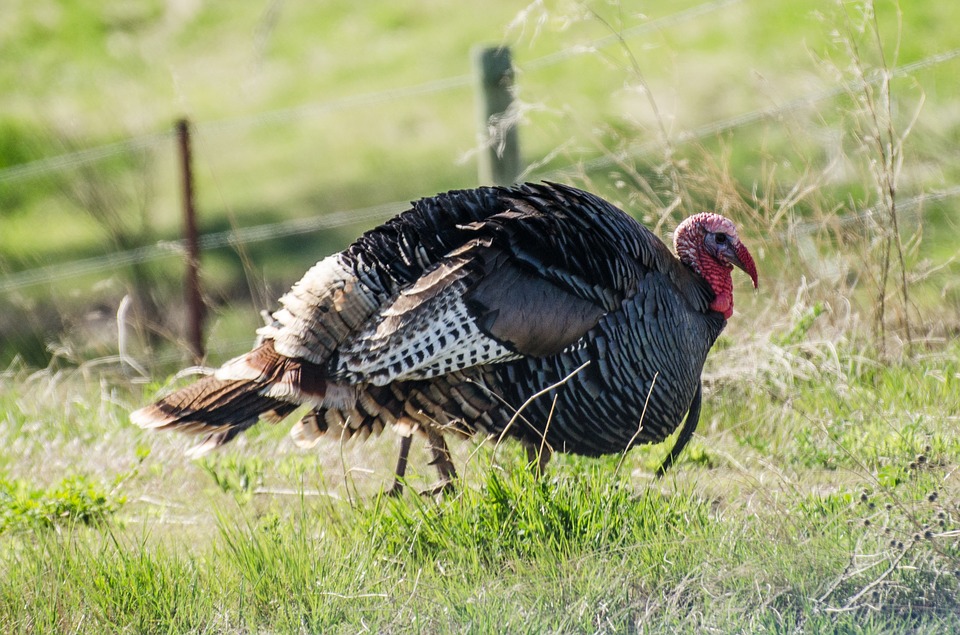There is nothing that marks the arrival of spring quite like the thrill that comes with turkey hunting. As every veteran turkey hunter knows, successfully hunting wild turkeys is a challenge that will test your abilities and energize your senses. Here are some turkey hunting tips to get your hunting season off to a fantastic start.
Why Turkey Hunting is So Hard
It’s fascinating how veteran wild turkey hunters say that they relish hunting this particular bird during the spring because it’s such a terrific test of hunting ability. If you’ve ever spent a long, soggy spring day hunting turkey and never even so much as heard a turkey calling in the distance, you know that this sport requires your absolute best effort. Here’s why Wide Open Spaces says it’s so hard to hunt turkey:
- A turkey has an outstanding vision and can spot you at a great distance
- Turkeys learn individual hunter calls and know to stay away
- Novice hunters don’t have experience with shotguns and bows
- Gobblers mix in with a group of hens
- The bird avoids the decoy
- Wild animals don’t always do what you think
Now that you know the primary reasons why you better prepare before you head out on your first day of turkey hunting, let’s look at some time-tested turkey hunting tips that will have you bragging to your friends about your turkey hunting prowess in no time.
#1: Know the Laws in Your Area

The law regarding spring turkey hunting varies depending on the state in which you live, and it’s critical that you know the law before you go shooting. In Oregon, for example, the spring hunt runs from mid-April through the end of May, and you’ll need both a hunting license and a turkey tag. You can bag up to one gobbler a day for a total of three turkeys in hunting season.
Remember: You may only hunt gobblers during the spring turkey hunt.
#2: Practice, Practice, Practice
Did you let your shotgun target practice lag over the last few months in favor of winter activities? Make sure that you get the right amount of training in before you go hunting. Consider purchasing a turkey target to set up at your local shooting range. Keep in mind that you might only get one chance to take a lethal shot at a live gobbler. Take the time to practice until you feel confident that your shooting is in tip top shape and then drill a little more.
#3: Pick a Promising Location

You will substantially increase the odds that you’ll find a gobbler if you hunt where turkeys are known to live. It’s useful to do some internet research to see if the public and private turkey hunting organizations in your area recommend general hunting areas. Once you’re out in the field, it is imperative that you stay off of private land unless you have the landowner’s permission.
#4: Dress for the Hunt
The wild turkey is widely known as one of the most robust birds to bring down because they have fantastic vision and seem to have a long memory. That said, you must choose camouflage that lets you blend into the scenery if you hope to entice a gobbler to come into shooting range. Never wear the colors blue, red, white, or black as they are often mistaken as a turkey by other hunters. Also, please don’t leave your orange safety vest at home. You should always wear it when you’re walking outside of your calling spot.
#5: Respect the Sport
There is so much more to spring turkey hunting than merely grabbing a shotgun and heading into the outdoors. Respect your fellow hunters and the wild turkey population by striving to uphold ethical hunting. For example, respectful hunters will not shoot a male turkey that is resting in a roost tree.
Ethical hunting is especially crucial during spring turkey hunting because ignoring appropriate behavior can lead to tragedy. The Missouri Department of Conservation, for instance, notes that around seventy-five percent of turkey hunting-related accidents are the result of unethical behavior. Shockingly, many of these accidents happened because the hunter fired without positively identifying the target.
#6: Never Forget Safe Hunting Practices

There’s no doubt that unsafe hunting practices result in deaths and injuries every spring. Never forget that safety is paramount in every situation. Some of the bare bones basics to remember include:
- Identify the turkey before taking a shot
- Only shoot at a legal turkey when you can see the area around it
- Never stalk a gobbler
- Cover a decoy when you’re walking to a new location
- Stand still and shout/whistle at an approaching hunter
- Never wave your arms
- Remember that there are other hunters in the area
- A turkey call can mimic the sound of a real turkey – don’t shoot at a sound
#7: Increase Your Wild Turkey Knowledge
The best hunters know that understanding wild turkeys is key to a successful hunting season. An excellent place to start your research is with the National Wild Turkey Federation. The group began in 1973, and it is a leader in protecting wild turkey habitat while also offering robust protection of the rights of hunters.
The helpful information provided on the National Wild Turkey Federation website includes:
- All About Wild Turkeys
- Gear Up
- Find a Place to Hunt
- Before the Hunt
- On the Hunt
- After the Hunt
Along with specific wild turkey hunting advice, you’ll find a host of other things including upcoming events, educational resources, and an annual convention.
Lastly, spring turkey hunting holds a special place in the hearts and souls of many generations of hunters, and our turkey hunting tips will help you to excel in your springtime shoot. The right combination of preparation and practice along with respect for turkeys and your fellow hunters will make 2019 your best season of hunting yet.
ScopeShield is excited to support springtime turkey hunters by providing the most exceptional scope protection in the industry. Contact us for an introduction to our high-quality line of firearms accessories.




